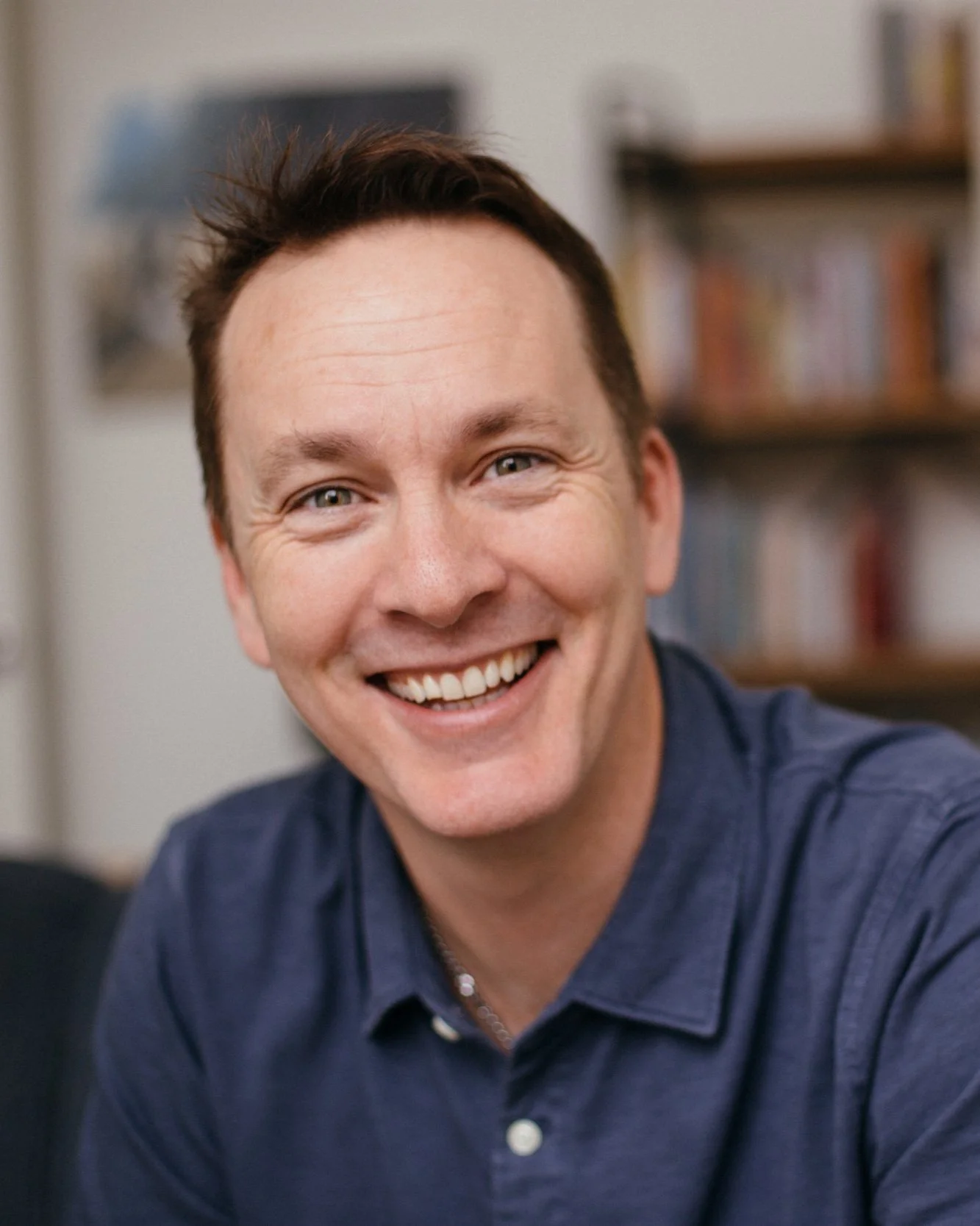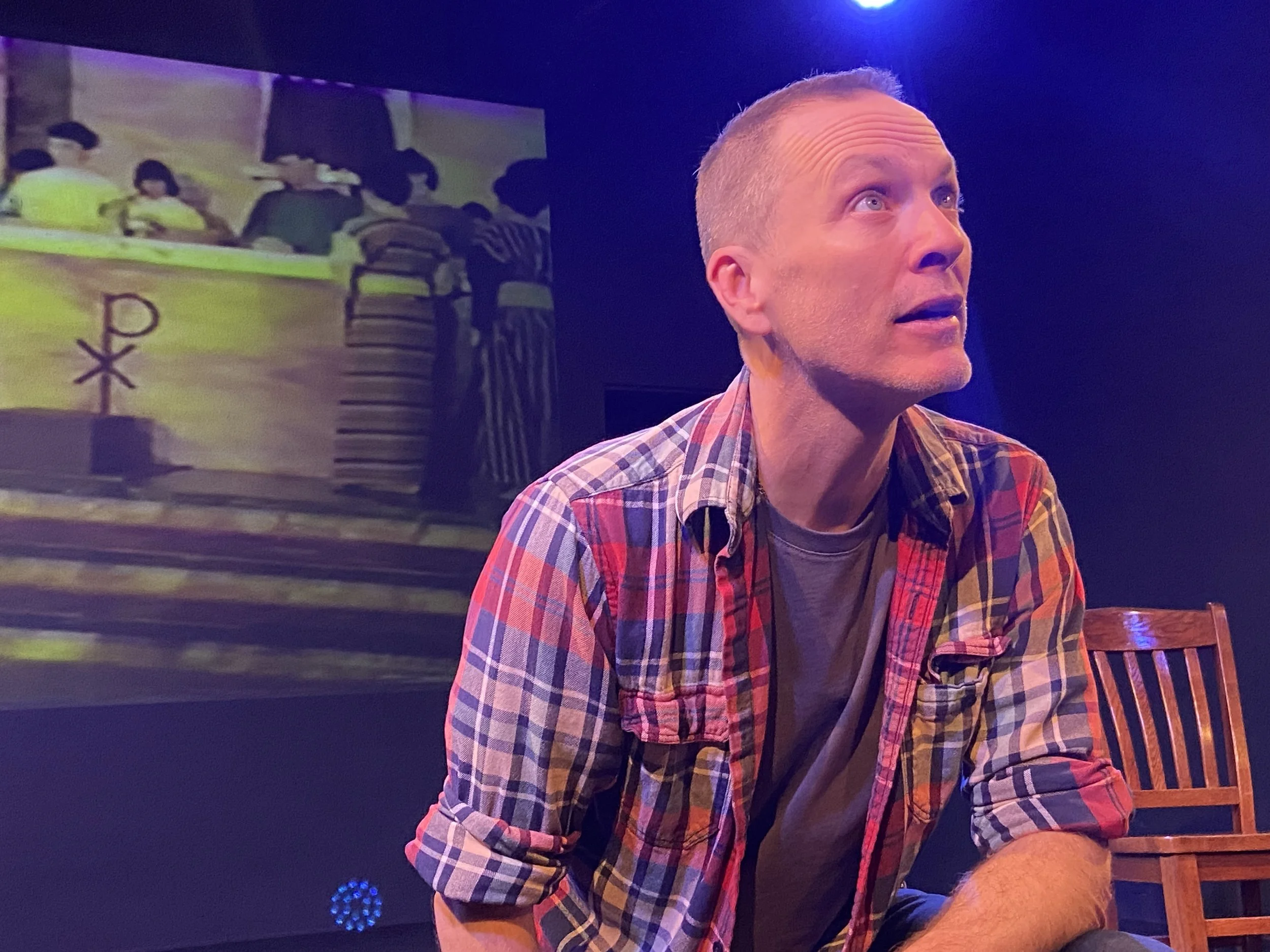Abuse Survivor Brings His Story to the Stage, Finding Healing and Joy
Jay Sefton remembers feeling honored to be chosen by classmates to perform the role of Jesus in the eighth-grade passion play.
But that honor soon grew dark.
Performed at his parish school in 1985 in Havertown, Pennsylvania, near Philadelphia, the play was directed by Fr. Thomas J. Smith, a priest who used the play as an opportunity to abuse Sefton.
Jay Sefton
Later, a 2005 Philadelphia grand jury report revealed that Smith led passion plays at multiple parishes, where he abused the boys cast as Jesus. He also took Sefton and other boys on camping trips where he perpetrated abuse. He was laicized in 2007.
Sefton has turned these experiences and his attempts to navigate the Archdiocese of Philadelphia’s victims compensation fund into a one-man play, “Unreconciled.”
The name refers to the archdiocese’s Independent Reconciliation and Reparations Program for abuse survivors, launched in 2018. “I did not come out of that feeling reconciled,” Sefton says.
He plays 12 different characters in the 80-minute production, including himself, Fr. Smith, attorneys for the archdiocese, and fellow classmates. He also plays his late father, “a very quiet, affable guy” who became furious when he learned that his son had been harmed.
This summer Sefton will perform “Unreconciled” on July 26 at the SNAP National Conference in Harrisburg, Pennsylvania. He is also scheduled to perform at the Cotuit Center for the Arts in Cotuit, Massachusetts, followed by a series of performances in Ireland in October and November.
Why Theater?
Sefton worked for more than a decade as a professional actor and is deeply passionate about theater. But he chose to return to school in his 40s to become a licensed mental health counselor after his own beneficial experiences in therapy.
He currently works in private practice with clients on issues including trauma and addiction. In 2021 he advocated for the Pennsylvania legislature to open a two-year look-back window that would temporarily suspend the statute of limitations on child sexual abuse cases. That effort that failed.
“It all fell apart in fantastic fashion, and I was filled with rage that I didn’t know what to do with,” he explains.
He began writing a play, eventually collaborating with Mark Basquill, a fellow clergy abuse survivor and Philadelphia native. A psychologist now based in North Carolina, Basquill is an experienced playwright who had written plays about his own experience of harm in the Catholic Church. He made key contributions to the script.
“He wrote the Fr. Smith monologues because he worked with male offenders early in his career,” Sefton says. “I don’t know that I would have been able to approach it with the same expertise and equanimity that he could.”
Sefton believes strongly in the healing power of theater. He notes that The Body Keeps the Score, the influential book about trauma by psychiatrist Bessel van der Kolk, identifies theater as a particularly effective tool for processing trauma.
“The ancient Greeks used it with people returning from battle,” he says. “There’s something therapeutic about running our stories under those bright lights, out on stage. Even if you’re watching someone else, you feel that Greek notion of catharsis,” a term for the beneficial release of strong emotions.
Connecting with Audiences
Jay Sefton on stage in Los Angeles
Once the script was complete, Sefton began performing the play in early workshop productions near his current home in western Massachusetts, unsure how audiences would react. “It’s not the easiest thing to sell, to say, “I’ve got a show about clergy abuse,” he notes.
But audience members responded warmly. After the official premiere at the Chester Theater in Massachusetts on July 4, 2024, Sefton began holding talkbacks after the performances, to allow people to ask questions and offer their thoughts and feelings about the play. Some stood to share their own experiences of sexual abuse, sometimes for the very first time.
“The play is a jumping off place, and the talkback afterward started to feel like the real main event,” he says. He has invited talk-back panelists from SNAP and Bishop Accountability to share their expertise. At a production in Los Angeles, he offered a support group for people who have experienced abuse. He and his wife, writer Melenie Freedom Flynn, are planning to offer writing workshops to help people speak their trauma stories.
Survivors tell Sefton that the Fr. Smith monologues feel eerily familiar, echoing things their own abuser told them. “It almost feels like there’s this playbook,” he says.
No longer Catholic, Sefton remains angry with the institutional church. But says he has felt surprised by the supportive response from Catholics who see the play, including reviewers in Catholic media. He was also moved when Awake Executive Director Sara Larson reached out to him soon after he began performing “Unreconciled” last year and told him about Awake. He says that the conversation started “sanding down my rough edges,” softening some of his anger toward people in the pews.
“The response of people has forced me to get more nuanced in my thinking about it all,” he says.
“An Act of Joy”
Despite the play’s heavy subject matter, Sefton says that he is invigorated by the show. The script is laced with humor, and he enjoys the interaction with the audience as the play unfolds each night. Playing his dad, who died in 2012, helps him to feel closer to him.
“It’s an act of joy to go out on stage and play these characters,” he says. “I really feel grateful to get to do this. When people open up afterward, I love my work as a therapist too. If someone is moved by what they saw, that’s energizing.”
—Erin O’Donnell
Awake is a community that strives to be compassionate, survivor-centered, faithful, welcoming, humble, courageous, and hopeful. We thank you for choosing your words with care when commenting, and we reserve the right to remove comments that are inappropriate or hurtful.


